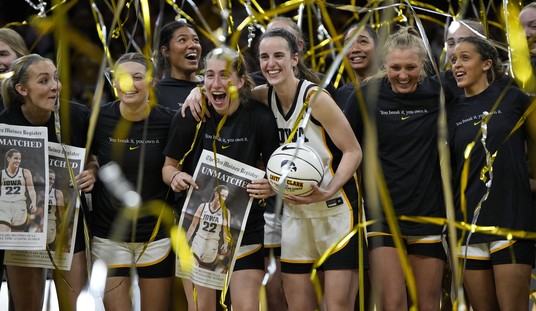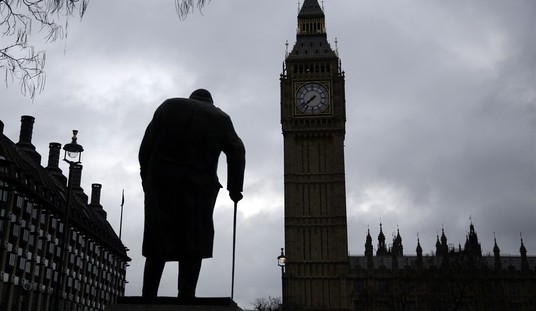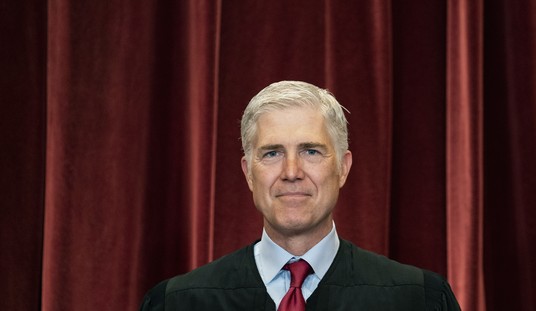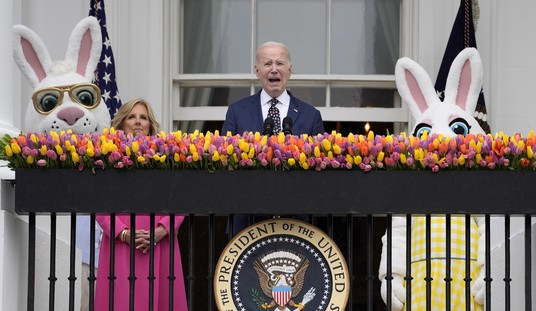I understand that like other op-ed pages, The Wall Street Journal feels compelled to have at least one columnist who is an unabashed liberal. But one wonders if they picked Thomas Frank because they wanted to choose someone whose arguments are so thin that they did so to expose the weaknesses in the arguments of our contemporary liberal pundits.
Yesterday, Frank hit rock bottom with his rather inane attack on Glenn Beck. What upsets him is Beck’s expose of Anita Dunn’s now famous remark that Chairman Mao was one of her “favorite political philosophers,” who along with Mother Teresa, she regularly turned to for inspiration. At PJM, our colleague Roger Kimball has already dealt shrewdly with the very notion that Mao could even be called a philosopher.
That definition of Mao is not what upsets Mr. Frank. Rather, he argues that to Beck, “Ms.Dunn was yet another person who deserved to be added to the long list of radicals that Mr. Beck had uncovered within the government.” Evidently, it does not disturb Frank one bit that Mao, to anyone who knows some history, was one of the bloodiest tyrants and most vicious totalitarian dictator of the last century. The point is not that Dunn is another left-wing radical snuck into the White House, but that an individual who speaks with the President’s authority to young people can without a hint of apology be recommending Mao to them as an inspiring figure to emulate.
Second, Mr. Frank thinks it unfair that Beck did not phone those he attacks and ask them to appear on his program to defend themselves. Instead, Beck rants on the air about how the White House will not phone him to explain themselves. Two individuals whom the WH either consulted with or appointed were Robert McChesney, whom Frank simply calls “a frequent target of Mr. Beck,” and Mark Lloyd, the new Chief Diversity Officer at the FCC.
So Frank phoned them up; he calls McChesney an “old friend” and disarmingly describes him as head of an “advocacy group on media policy.” It sounds like a simple non-partisan organization that McChesney heads. But a quick perusal of his own articles, like this one, immediately reveal that he is an unabashed sectarian Marxist of the old school, who sees the U.S. media as a tool of the capitalist ruling class that maintains hegemonic control over society. For McChesney, journalism “smuggles in values conducive to the commercial aims of the owners and advertisers as well as the political aims of the owning class.” Indeed, to McChesney, journalism is simply “ideological class warfare.” As he concludes: “Our job is to make media reform part of our broader struggle for democracy, social justice, and, dare we say it, socialism.”
Now if this man has indeed been to the White House more than once to consult on media policy, shouldn’t this be a concern of ours? How ingenious of Thomas Frank to leave the details out, and simply complain about how Beck has defamed his old friend, without giving him a chance to respond.
Next Frank tells us how he e-mailed Mark Lloyd, whom Beck somehow unfairly defamed by “repeatedly airing video clips in which he appears to hold noxious views.” Look at Frank’s words: “appears to hold.” Come on, Mr. Frank. The videos, as we all know, were shown in full. They reveal Lloyd telling an audience, fairly recently, how he admires Hugo Chavez and his ability to curb a free media in Venezuela by shutting down opposition stations. Mr. Lloyd is also shown praising Chavez’s revolution.
In a public and videotaped panel in 2008, Lloyd called Hugo Chavez’s government the result of “really an incredible revolution…a democratic revolution.” As a result of his triumph, Lloyd argued that “the property owners and the folks who were then controlling the media rebelled,” with the result that Chavez and his cadre had to move and close their media outlets down. Then he said the US sought to oust him, but Chavez came back stronger than ever, “and had another revolution,” and then “started to take the media very seriously in his country.” Viewing Chavez’s totalitarian actions favorably, Lloyd implied that opponents of the right-wing media should do the same here.
Lloyd also said that the “fairness doctrine” isn’t enough, that we need new “structural rules” to put teeth into it, and that “good white people in important positions” should “step down so someone else can have power.” Is it important that a man who now is Associate General Counsel and Chief Diversity Officer of the FCC has these views, and that the public get to hear about them?
It is good journalism to report on what Lloyd believes—to show him uttering his actual words- and to call into question with editorial comment the judgment made by the Obama administration in appointing this man to an important media post.
Does Thomas Frank really think that he is making a sound explanation when he writes “that lots of people, including conservatives, have cited Mao and Lenin and other such demonic figures in all sorts of contexts.” I suspect that conservatives, and liberal democrats (with a small d) who believe in the Western heritage of liberalism have cited these people to criticize their philosophies; quite a different thing than citing them approvingly as figures to emulate or as philosophers of class struggle who should guide our views on media policy.
So, let me close with Thomas Frank’s own words. What Frank argues is “only possible to believe after you have utterly closed yourself off to conventional ways of knowing, after you have decided that the reporting and analysis and scholarship on these subjects are not worth reading, and that you will choose ideological fairy tales over reality….”
Frank, of course, was referring with the above sentence to Glenn Beck. But his words apply to Frank himself. So here are two books he might send to Anita Dunn, Robert McChesney and Mark Lloyd. I would start with Jung Chang and Jon Halliday’s acclaimed biography, Mao:The Unknown Story, followed by the book by Plino Mendoza, Carlos Alberto Montaner, and Alvaro Vargas Llosa, Guide to the Perfect Latin American Idiot.
These would be a fine start to help Thomas Frank get over what he accuses Beck of: “a new kind of ignorance.” These authors indeed have “professional standards of inquiry,” the kinds of standards that Dunn, McChesney and Lloyd are obviously deeply in need of. I agree with Frank that “ideas have consequences.” The problem is that those Thomas Frank so admires are those whose heads are filled with bad ideas; ideas that history has shown have resulted in the horrors of the totalitarian century that just passed.
Perhaps it is not too late for Thomas Frank to do some reading himself.








Join the conversation as a VIP Member